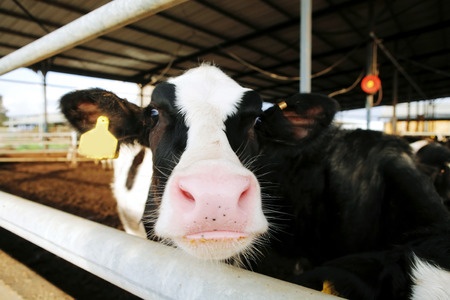An Idaho federal judge on Monday, August 4, 2015, ruled unconstitutional Idaho’s new “ag-gag” law that criminalizes undercover investigations in agricultural facilities, according to court documents. U.S. District Court Judge B. Lynn Winmill’s ruling is the first to strike down a state “ag-gag” law. Seven other states, including Iowa, have enacted similar statutes in recent years.
Idaho’s recently enacted law was in response to an undercover video captured and released by animal activist group known as Mercy for Animals showed workers at a dairy farm in Hansen, Idaho, allegedly abusing cows.
In response, the Idaho Dairymen’s Association had drafted and sponsored the bill that became code, contending that Mercy for Animals failed to immediately report the abuse and therefore allowed additional abuse to occur. The law ultimately would deem “interference with agricultural production” — or what one supporter of the bill called “farm terrorism” — a new crime.
Under Idaho law, a journalist or animal rights investigator can be convicted for not disclosing his media or political affiliations when requesting a tour of an industrial feedlot or applying for work at a dairy farm. Violators could face up to a year in jail.
The Animal Legal Defense Fund (ALDF), joined by other organizations and individuals, challenged the law as unconstitutional, according to the ruling, “by (1) criminalizing all employment-based undercover investigations; and (2) criminalizing investigative journalism, whistleblowing by employees, or other expository efforts that entail images or sounds."
Judge Winmill’s take on the Idaho law was that it “seeks to limit and punish those who speak out on topics relating to the agricultural industry, striking at the heart of important First Amendment values. The effect of the statute will be to suppress speech by undercover investigators and whistleblowers concerning topics of great public importance: the safety of the public food supply, the safety of agricultural workers, the treatment and health of farm animals, and the impact of business activities on the environment.”
Similarly, an “ag-gag” law can be found in Iowa Code § 717A.3A enacted in 2012. This law makes agricultural production facility fraud a crime. This section provides:
1. A person is guilty of agricultural production facility fraud if the person willfully does any of the following:
a. Obtains access to an agricultural production facility by false pretenses.
b. Makes a false statement or representation as part of an application or agreement to be employed at an agricultural production facility, if the person knows the statement to be false, and makes the statement with an intent to commit an act not authorized by the owner of the agricultural production facility, knowing that the act is not authorized.
2. A person who commits agricultural production facility fraud under subsection 1 is guilty of the following:
a. For the first conviction, a serious misdemeanor.
b. For a second or subsequent conviction, an aggravated misdemeanor.
The Iowa law does not make it illegal to take photos or video of farms. But if any farm employee releases a video, arguably a prosecutor could say that is what they ended up doing, so they must have had some inclination, at some point in time, to commit fraud. The bottom line, however, is such persons, at least for now, can be prosecuted for arguably engaging in protected speech.
Only time will tell if other states, like Iowa, suffer the same fate as the law in Idaho now has.







Let Us Know What You Thought about this Post.
Put your Comment Below.